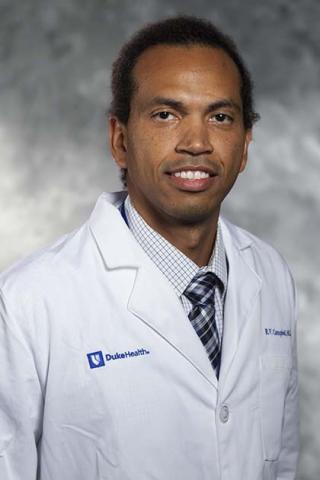How to Practice Community Health?
The mission of the Duke Family Medicine Residency Program is to train physicians who are excellent clinicians, leaders and advocates of health care. Population and community health are key components of our resident education, but, to be honest, when I began residency last summer, I didn’t really understand how I would be “practicing” community health as an intern. As the months have gone by, however, I have learned different aspects of public health that have allowed me to develop a better sense of what practicing community health may look like.
Trying to learn community health in the context of our rigorous medical training adds another dimension to our already comprehensive list of things to do when we start residency. Part of the struggle — if not most of it — is linked to a system designed to train us to become physicians, as opposed to experts in community health. And that is not by accident, but rather a matter of practicality since our first and foremost responsibility is to learn how to practice medicine so that the patient in front of us receives the best care possible.
But practicing community health, at least by definition, entails managing patient populations with the goal of reducing morbidity and mortality on a larger scale. How to do this systematically is part of our learning, and even though the lack of standardized processes to accomplish this within our medical training can be frustrating, this also presents itself as a great opportunity — an opportunity to define the work that we do and align it with the values that brought us here to try to positively impact the communities that we serve.
Framing the Health of our Patients
To me, practicing community health begins with shifting the way in which I see my patient encounters. Instead of thinking of them as individual office visits, I think of them as opportunities to meet and understand members of the community I am serving. This small, yet significant, step in the way I approach my patients helps me frame their health in the larger context of population health. This framework then allows me to think of ways of helping patients outside of the clinical environment in which I see them.
As a clinician, I still need to focus on my individual patients, but by trying to understand them as part of a population, I am more effective at helping them address underlying problems that may be directly or indirectly affecting their health — for instance, by connecting them to local resources when I identify social determinants of health that are present in their communities. By engaging with my patients this way, I am also engaging with their community. Whereas my intervention may be individualized, my approach is not. Community health requires looking at the larger picture and the context in which our patients live, their communities, and resources. To me, practicing community medicine entails thinking in different ways to not only identify, but also address, needs in the communities where our patients come from.
That, however, is only one approach, and practicing community health can mean many different things. It can mean advocating for changes in policy and marching alongside those demanding social reform — something that I am proud to say several individuals in this program have done. It can mean practicing out of a community-based setting or reaching out to our patients through home visits. Whichever way we engage, we have an opportunity to contribute in a positive way that goes beyond the impact that we may assume we can have as residents in training. And whereas it is true that practicing community health during residency may seem as a daunting task, this year I’ve learned that doing so is not impossible. Obtaining a foundation in population health require a conscious effort but beyond that, our imagination can also lead us to small, yet significant ways in which we can start practicing community health from the very beginning of our residency training.
Roosevelt Campbell is a first-year resident with the Duke Family Medicine Residency Program. Email roosevelt.campbwell@duke.edu with questions.
Editor’s note: Duke Family Medicine residents guest blog every month. Blogs represent the opinion of the author, not the Duke Family Medicine Residency Program, the Department of Community and Family Medicine or Duke University.
